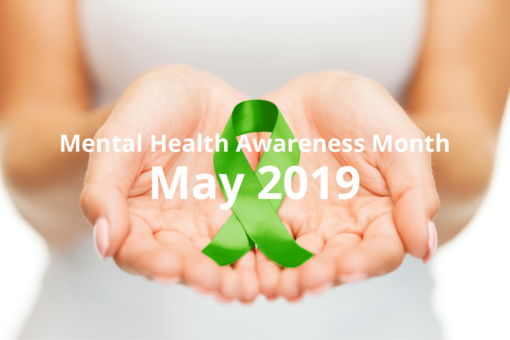Since 1949, national mental health organizations across the United States have dedicated the month of May as National Mental Health month to raise awareness and break the stigma on mental health disorders. 2019 marks Mental Health America’s 70th year celebrating National Mental Health Month and this year Mental Health America is taking last year’s theme of #Mind4Body to a whole new level by exploring how animal companionship, work-life balance, spirituality, recreational activities, and social connections can have a positive impact on an individual’s mental health and overall physical well being.
Adventuring in the outdoors
Studies and research have found that spending time outside can help individuals combat depression and anxiety. Whether it is going for a walk, camping in the woods, skiing on a mountain, reading in the park, or daydreaming at the beach, the outdoors can calm the mind, and replenish the soul while increasing allowing our bodies to soak up vitamin D from natural light. Stanford University released a study in 2015 confirming that opting outside can have a positive impact on mental health. “Specifically, the study, published in Proceedings of the National Academy of Science, found that people who walked for 90 minutes in a natural area, as opposed to participants who walked in a high-traffic urban setting, showed decreased activity in a region of the brain associated with a key factor in depression.
Laughter
A good belly laugh not only brings people together and establishes surprising connections, but it also releases endorphins which promotes an overall sense of well being as well as decrease stress levels and minimize pain. Laughter is known to relieve muscle tensions temporarily, increase antibodies in the immune system to fight off infection, improve blood vessel function, which promotes heart health, and diffuse any anger or conflict between individuals. You are more likely to laugh around others than you would alone, and therefore laughter is known to form social bonds with others, which can add joy, vitality, and Discovery Mood and Anxiety to life.
A great benefit to laughter is that even simulated laughter can bring just as beneficial as the real thing. A Georgia State University study found that incorporating bouts of simulated laughter into an exercise program helped improve older adults’ mental health as well as their aerobic endurance. Plus, hearing others laugh, even for no apparent reason, can often trigger genuine laughter.
Animal companionship
Having a pet can reduce depression and anxiety, according to “Pet Therapy and Depression.” Humans have an innate instinct to touch and feel and to experience a physical connection with others. Dogs and cats also share this fixed pattern of behavior, allowing a physical bond between humans and animals. This physical bond can strengthen the emotional connections between animals and their human companions.
Hardened criminals have exhibited long-term behavioral changes after interacting with dogs in prison programs. For many prisoners, interaction with the animals was their first experience with unconditional love and mutual affection. Additionally, hugging a dog or cat releases oxytocin and dopamine, hormones that reduce stress, lower blood pressure and heart rates, and increase happiness.
Social connections
Humans are social creatures, and we thrive on positive interactions with others. Whether it is a parent, sibling, friend or lover; we tend to excel in healthy relationships with others. Good companionship is known to increase the mood and help with mental disorders such as depression and anxiety. Even the act of physical touch can make a huge difference in an individual’s daily life. According to an article released in January 2011 by CNN Health, physical contact directly affects certain regions in the brain. The hypothalamus acts as the emotion center of the brain, and when physical acts are performed, such as hugging or holding hands, chemical signals are fired directly from the hypothalamus to produce hormones in other areas of the brain that function to promote positive connections and bonding. Simply stated, hugging produces happy hormones. Physical touch also has a calming effect on the brain. For example, contact can inhibit certain regions of the brain from responding to threat cues that would typically produce fear.
